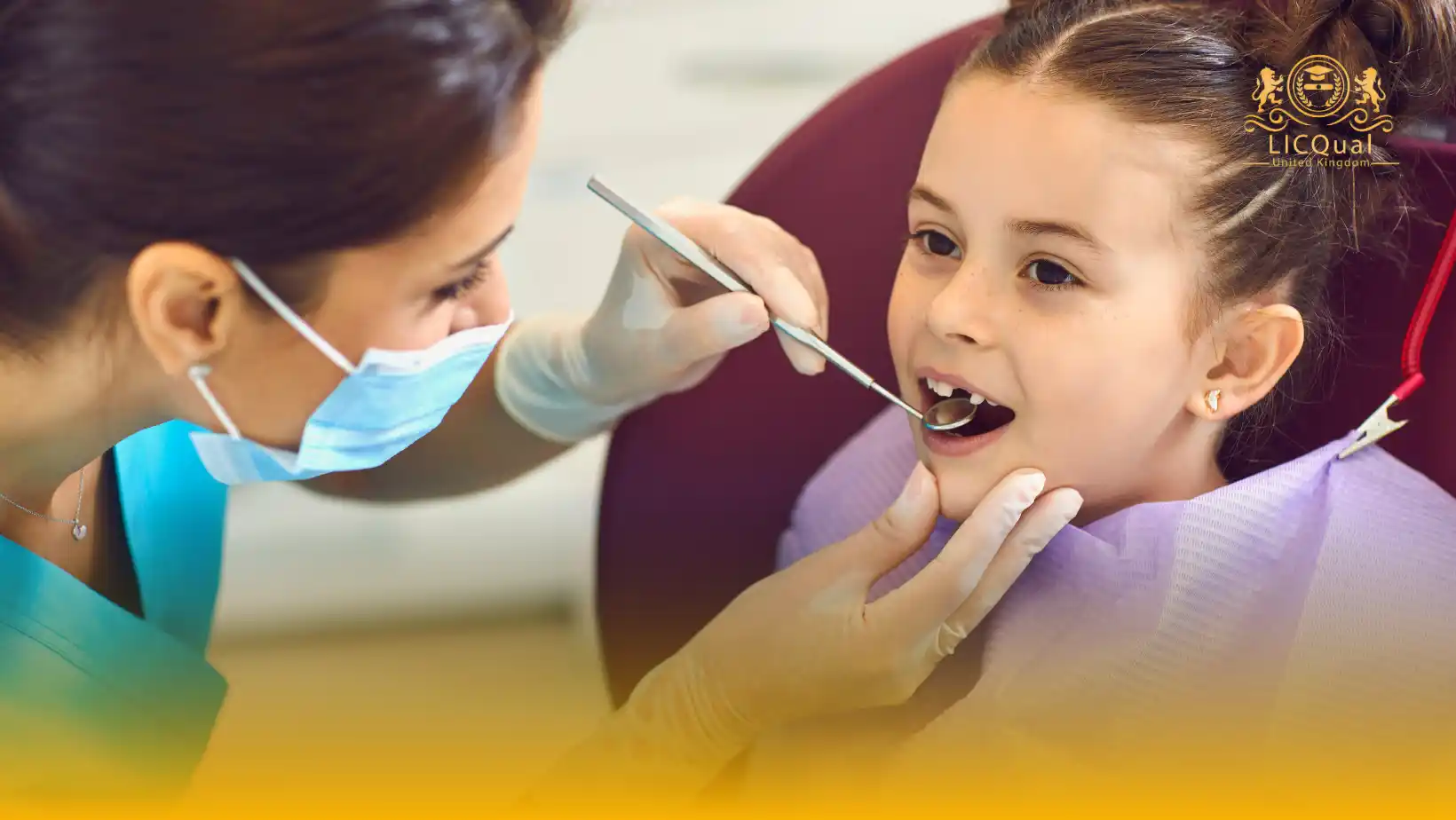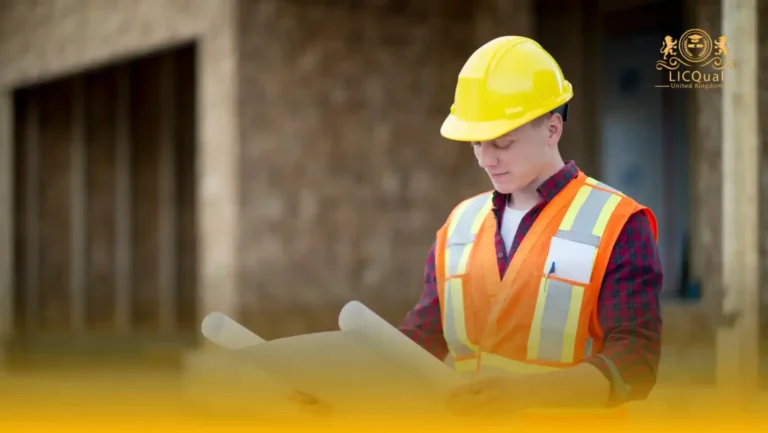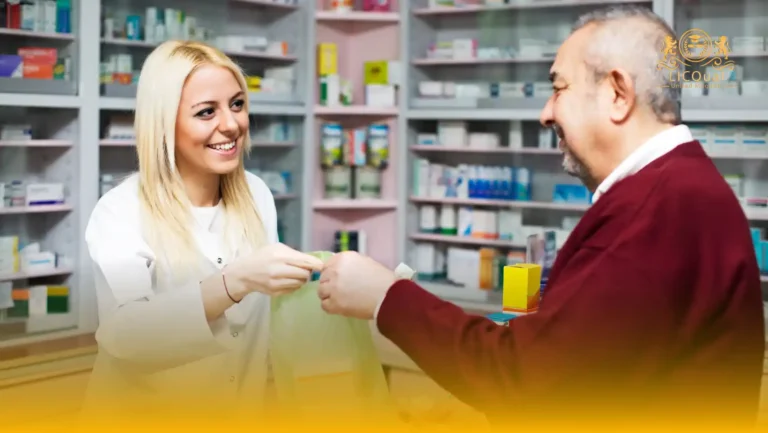The LICQual Level 3 Certificate in Pediatric Dentistry is a highly esteemed professional qualification meticulously designed for dental practitioners seeking to elevate their clinical expertise and advance their career—not for those entering the field for the first time. This certificate is tailored to experienced professionals aiming to deepen their understanding of paediatric oral health, broaden their knowledge base, and accumulate valuable Continuing Professional Development (CPD) credits to support lifelong learning and professional growth.
As a Level 3 vocationally-relevant award, the qualification demands both theoretical insight and practical proficiency. Learners will engage with advanced paediatric dentistry topics and develop specialised skills that enhance their clinical practice and patient outcomes. The course aligns with CPD standards, reflecting LICQual’s commitment to supporting the professional trajectory of established practitioners.
Importantly, centres authorised to deliver this certificate must ensure the highest training standards. Only institutions staffed by competent, qualified professionals and equipped with the necessary resources, materials, and teaching aids should deliver the programme. This ensures that learners receive high-quality education, practical experience opportunities, and the guidance needed to succeed and fully benefit from the qualification.
The LICQual Level 3 Certificate in Pediatric Dentistry offers a meaningful pathway for dental professionals to expand their competencies, accrue CPD credits, and strengthen their career prospects—provided that learners enrol through well-resourced, expert centres committed to excellence.
Course Overview
Qualification Title
LICQual Level 3 Certificate in Pediatric Dentistry
Total Units
6
Total Credits
24
GLH
120
Qualification #
LICQ2200638
Qualification Specification
To enroll in the LICQual Level 3 Certificate in Pediatric Dentistry , applicants must meet the following criteria:
|
Qualification# |
Unit Title |
Credits |
GLH |
|---|---|---|---|
|
LICQ2200638-1 |
Behaviour Management in Paediatric Patients |
4 |
20 |
|
LICQ2200638-2 |
Child Assessment & Treatment Planning |
4 |
20 |
|
LICQ2200638-3 |
Preventive Dentistry & Oral Health Promotion |
4 |
20 |
|
LICQ2200638-4 |
Pulp Therapy & Restorative Techniques |
4 |
20 |
|
LICQ2200638-5 |
Dental Trauma & Emergency Management |
4 |
20 |
|
LICQ2200638-6 |
Research Methods & Evidence-Based Practice in Dentistry |
4 |
20 |
By the end of this course, learners will be able to:
1. Behaviour Management in Paediatric Patients
By the end of this unit, learners will be able to:
- Demonstrate effective behaviour guidance strategies suitable for children of different ages.
- Apply both pharmacological and non-pharmacological techniques to manage anxiety and pain in paediatric patients.
- Assess psychological and developmental factors influencing child behaviour in a dental setting.
2. Child Assessment & Treatment Planning
By the end of this unit, learners will be able to:
- Conduct comprehensive oral examinations for children, considering growth and developmental milestones.
- Perform accurate caries risk assessments and identify preventive priorities.
- Develop individualised, evidence-based treatment plans for paediatric patients.
3. Preventive Dentistry & Oral Health Promotion
By the end of this unit, learners will be able to:
- Identify key risk factors for caries and periodontal disease in children.
- Implement preventive measures, including fluoride therapy and fissure sealants.
- Promote oral health awareness through effective communication with children, parents, and caregivers.
4. Pulp Therapy & Restorative Techniques
By the end of this unit, learners will be able to:
- Apply appropriate pulp therapy techniques for primary and immature permanent teeth.
- Select and perform restorative procedures using suitable materials and methods for paediatric patients.
- Integrate minimal-intervention dentistry principles into clinical practice.
5. Dental Trauma & Emergency Management
By the end of this unit, learners will be able to:
- Diagnose and classify various types of dental trauma in children.
- Deliver prompt, evidence-based emergency care for traumatic dental injuries.
- Collaborate with multidisciplinary teams to manage complex trauma cases.
6. Research Methods & Evidence-Based Practice in Dentistry
By the end of this unit, learners will be able to:
- Critically appraise scientific literature to inform clinical decision-making.
- Apply research methodologies to support professional practice improvements.
- Develop a personal CPD plan that incorporates evidence-based approaches.
The LICQual Level 3 Certificate in Pediatric Dentistry is designed for dental professionals who want to specialize in the oral healthcare of children. This course is ideal for dental nurses, dental assistants, and aspiring pediatric dentistry practitioners seeking accredited recognition and practical skills. Whether you work in private practices, pediatric dental clinics, or hospital dental departments, this qualification equips you with the knowledge and confidence to deliver safe and effective pediatric dental care.
1. Dental Nurses Seeking Pediatric Specialization
- Ideal for dental nurses wanting to expand their clinical skills into pediatric dentistry.
- Develops practical knowledge in assisting with child dental procedures.
- Enhances understanding of pediatric oral anatomy and development.
- Builds confidence in patient care and behavior management for children.
- Adds an accredited Level 3 qualification to professional credentials.
2. Dental Assistants Looking for Career Growth
- Perfect for dental assistants seeking specialized pediatric dental knowledge.
- Strengthens ability to support pediatric treatment plans effectively.
- Improves patient management and communication with children and parents.
- Enhances practical experience with preventive and restorative procedures.
- Provides recognized certification to boost professional opportunities.
3. Aspiring Pediatric Dentistry Practitioners
- Designed for professionals entering the pediatric dental field.
- Provides foundational and advanced pediatric dentistry skills.
- Develops competency in treatment planning and child patient assessment.
- Prepares learners to assist or perform pediatric procedures confidently.
- Recognized qualification for career progression in dental specialties.
4. Experienced Dental Professionals
- Suitable for dentists or hygienists seeking to upskill in pediatric dentistry.
- Enhances technical expertise in child-focused dental procedures.
- Supports professional development and specialization.
- Provides insights into modern pediatric dental techniques and best practices.
- Strengthens ability to mentor junior staff in pediatric care.
5. Private Practice and Clinic Staff
- Ideal for staff working in private dental or pediatric clinics.
- Improves competency in assisting with pediatric dental cases.
- Enhances patient care and workflow efficiency.
- Ensures compliance with safety and professional standards.
- Adds a professional, accredited certification to the team.
6. Healthcare Professionals in Hospitals or Community Clinics
- Tailored for dental teams in hospital or community pediatric departments.
- Provides skills to support pediatric dental programs effectively.
- Enhances understanding of child patient care and monitoring.
- Develops confidence in assisting with complex pediatric procedures.
- Recognized certification for career development in healthcare.
7. Students and Career Changers Entering Dentistry
- Perfect for individuals transitioning into dental or pediatric roles.
- Provides structured learning in pediatric dental theory and practice.
- Builds hands-on skills for clinical application with children.
- Increases employability in dental and pediatric dental settings.
- Globally recognized Level 3 certification for professional growth.
The LICQual Level 3 Certificate in Pediatric Dentistry equips dental professionals across various roles to deliver safe, effective, and high-quality pediatric dental care while advancing their careers.
To ensure the highest standards of training and learner success, centres offering this qualification must meet the following requirements:
- Qualified and Competent Staff
- All teaching and assessment must be carried out by professionals who are appropriately qualified, experienced, and up to date with current paediatric dentistry practices.
- Staff should demonstrate expertise in both clinical and academic aspects of paediatric oral healthcare.
- Adequate Learning Resources
- Centres must provide access to up-to-date learning materials, reference texts, and evidence-based clinical guidelines.
- Digital learning platforms and multimedia resources should be available to support blended and flexible learning delivery.
- Clinical Facilities and Equipment
- Training should be conducted in fully equipped clinical environments that meet industry standards for safety, hygiene, and functionality.
- Essential paediatric dental instruments and materials must be available for practical skills development.
- Assessment and Quality Assurance
- Centres must follow structured assessment methods that meet awarding body requirements.
- Internal quality assurance procedures must be in place to maintain consistency, fairness, and reliability in learner assessment.
- Learner Support Services
- Centres should offer academic guidance, pastoral care, and CPD planning support.
- Facilities must be accessible, inclusive, and compliant with relevant equality and diversity legislation.
- Compliance with Regulatory Standards
- Centres must operate in line with national and international standards for vocational education and training delivery.
By meeting these requirements, centres can deliver high-quality, industry-relevant training that equips learners with the skills and knowledge to excel in paediatric dentistry.
Assessment and Verification
All units within this qualification are subject to internal assessment by the approved centre and external verification by LICQual. The qualification follows a criterion-referenced assessment approach, ensuring that learners meet all specified learning outcomes.
To achieve a ‘Pass’ in any unit, learners must provide valid, sufficient, and authentic evidence demonstrating their attainment of all learning outcomes and compliance with the prescribed assessment criteria. The Assessor is responsible for evaluating the evidence and determining whether the learner has successfully met the required standards.
Assessors must maintain a clear and comprehensive audit trail, documenting the basis for their assessment decisions to ensure transparency, consistency, and compliance with quality assurance requirements.







